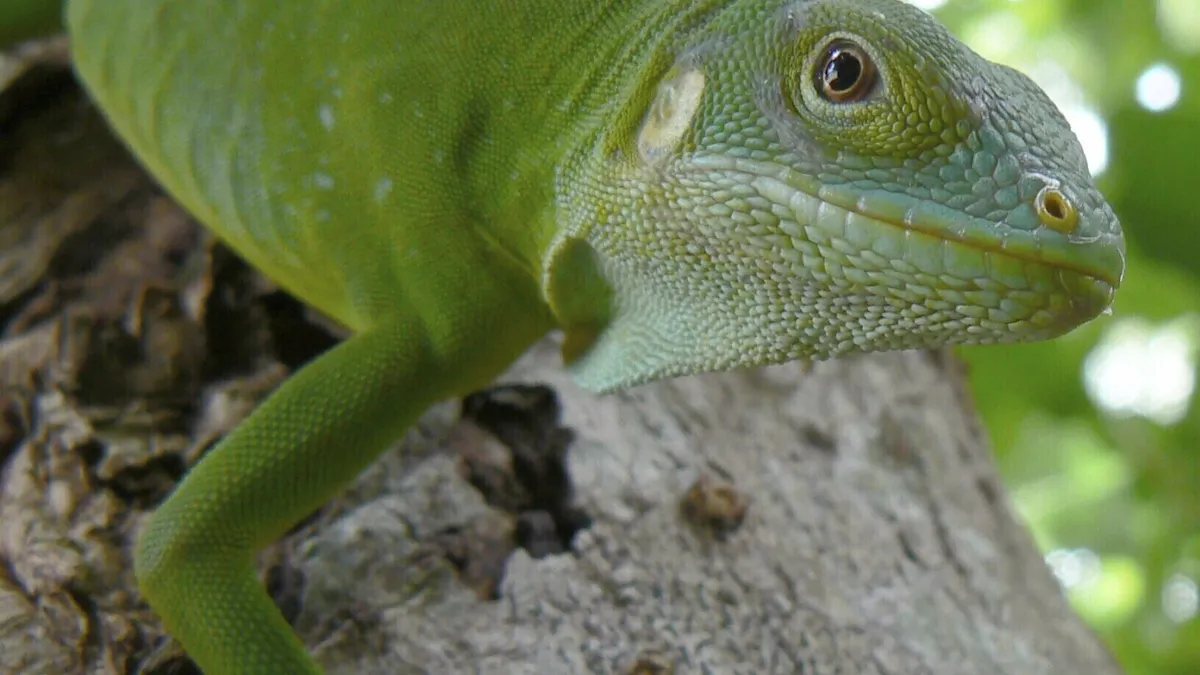
The question of how iguanas arrived in Fiji, a remote archipelago in the South Pacific, has puzzled researchers for years. While most modern-day iguana species are found in the Americas, thousands of miles away from Fiji, various theories have emerged. Some scientists speculated that these reptiles might have traversed through Asia or Australia before volcanic activity separated Fiji from the rest of the landmasses. However, new research presents a fascinating alternative — millions of years ago, iguanas may have embarked on an extraordinary 5,000-mile (8,000-kilometer) journey on a raft of floating vegetation.
This remarkable voyage is considered a record for terrestrial vertebrates, as no other land-dwelling species is known to have traveled such a distance over the ocean. Researchers believe that this method of travel could also explain how iguanas reached the Galapagos Islands off the coast of Ecuador and migrated between various islands in the Caribbean. Initially, scientists thought the distance to Fiji was too great for such a journey, but a recent study sheds new light on this fascinating phenomenon.
The groundbreaking study involved analyzing the genes of 14 iguana species from the Americas, the Caribbean, and Fiji. The researchers discovered that Fijian iguanas share a close genetic relationship with desert iguanas from North America, indicating that the two groups diverged approximately 31 million years ago. By creating a statistical model based on this genetic data and current iguana distribution, the researchers concluded that the iguanas most likely made their way to Fiji from North America.
“Given what we know now, their result is by far the most strongly supported,” stated Kevin de Queiroz, an evolutionary biologist at the Smithsonian National Museum of Natural History, who was not involved in the study. This research was published in the esteemed journal Proceedings of the National Academy of Sciences on Monday, offering new insights into the evolutionary history of these remarkable creatures.
The journey from North America to Fiji could have taken several months. Desert iguanas would have been well-suited for this long voyage, as they possess the ability to resist dehydration and could sustain themselves by feeding on the plants that drifted beneath them. Study author Simon Scarpetta from the University of San Francisco remarked, “If you had to pick a vertebrate to survive a long trip on a raft across an ocean, iguanas would be the one.”
Many iguana species native to Fiji are currently endangered, and the introduction of the invasive green iguana poses additional threats to their survival. Robert Fisher, a study author from the United States Geological Survey, emphasizes that understanding the origins and migration patterns of these iguanas can provide essential tools for conservation efforts. Protecting these unique species is crucial for maintaining the ecological balance in the islands.
As researchers continue to unravel the mysteries of iguanas' journeys and their adaptations, the insights gained will be invaluable in efforts to safeguard these fascinating reptiles for generations to come.